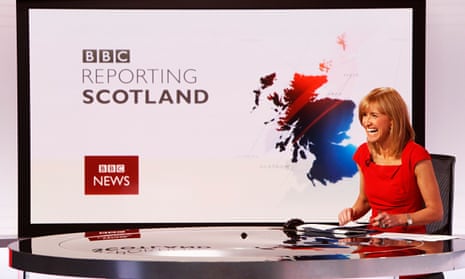The BBC’s royal charter and agreements that underpin the BBC’s existence specify the corporation’s public purposes, size, scale, scope, governance and funding mechanism. In other words, pretty much everything. When the charter comes up for renewal (by convention every 10 years) – coinciding as it does with the need for a new licence fee settlement – the BBC must find a convincing narrative about itself to avoid losing complete control of the public debate to others with well-worn agendas bent on radical change.
Although its programmes and services are by and large doing well and remain highly appreciated by the licence-paying public, the BBC corporately has been through a pretty torrid time. Savile, senior executive payoffs, the failed £100m Digital Media Initiative, losing a new director general in a matter of days and ultimately a trust chairman in the process have left the corporation looking battered, inefficient and badly governed. The trust system – only introduced at the last charter renewal in 2007 – is also looking pretty well bust. Add to that the Scottish no vote and the drive to greater devolution that will now surely follow (from which the BBC is unlikely to remain immune) and there really is, as they say, everything to play for.
However, where once the BBC’s size, scale and scope and even purpose were touchstone issues, fuelled by concerns over the BBC’s potentially negative market impact in nascent digital media marketplaces, it’s the licence fee and the BBC Trust that are most likely to be the focus this time. Already a campaign to decriminalise licence fee evasion has gathered enough influence to force the government to announce a formal review.
The BBC fears, rightly, that simply decriminalising non-payment runs the risk of increasing the problem costing the corporation as much as £200m a year in lost revenue. Campaigners point out that people are not criminalised for non-payment of other utility bills – gas, electricity and so on – but have no answer when it is pointed out that those services can be switched off whereas in its current form broadcasting over the airwaves cannot.
Which raises the whole question of subscription – in other words whether the BBC should be moving away from a compulsory licence fee, backed by criminal sanctions, towards subscription funding. It is here that other arguments come into play. Lord Terence Burns, former treasury mandarin and now chairman of Channel 4 but who previously led a government review of the BBC’s funding, has argued that far from underpinning the BBC’s independence, the licence fee – because of the level of parliamentary scrutiny it brings, because it is now considered as a “tax” by the treasury and because successive governments have seen fit to dip into it to fund things other than the BBC – is a long-term threat to the BBC’s autonomy and independence.
But there are obvious issues with a wholesale move to subscription to which there are no easy answers. The BBC argues it would change the nature of the institution, potentially creating perverse incentives to maximise revenue that would conflict with the BBC’s broader public purposes and, critically, it would by definition cease to be a universal service.In any event, the BBC argues, that would be very difficult to implement since the vast majority of TVs contain no means of switching off the BBC’s signals for people who choose not to pay.
My guess is that this time around the licence fee will stay and the critical questions will be about how much it is and what and how much of it the government tries to take for itself. Which drives straight into the BBC’s open flank: the widespread perception of gross inefficiency. The last licence fee settlement – hastily arrived at in the middle of 2010’s comprehensive spending review – saw the government take £700m from the BBC for things it previously funded and froze the fee at £145.50 for seven years up until 2017.
This has led the BBC to have to save as much as 26%, according to current director general Lord Tony Hall. So the BBC is in fact already making substantial savings; it’s just that in the world outside, and especially at Westminster, nobody really believes it. Cue Hall’s promise of a “competition revolution” – a promise to market test everything the BBC does, including in-house production. The BBC hopes this will become its compelling new “efficiency narrative” without which its pitch for more money will surely fail.
Which brings us to governance and the widespread perception that the BBC Trust system is bust. While set up as the BBC’s sovereign body, there above all to represent licence payers’ interests, the trust appeared incapable of doing the job, stuck in constitutional limbo prohibited almost from getting involved. The new chair, Rona Fairhead, has made it clear she expects change. Whether that becomes wholesale – a move for example to a new unitary board, PLC-style system or more piecemeal – to try and make the best of the system as it is remains to be seen.
Then there is the no vote and what must surely follow. More independence and autonomy for the BBC in Scotland will almost certainly be matched in Wales and probably Northern Ireland. If that happens, what are the odds on a fully federalised BBC?
Read more on this issue:
BBC future survey: the licence fee should not be cut
To get weekly news analysis, job alerts and event notifications direct to your inbox, sign up free for Media Network membership.
All Guardian Media Network content is editorially independent except for pieces labelled ‘Advertisement feature’. Find out more here.

Comments (…)
Sign in or create your Guardian account to join the discussion